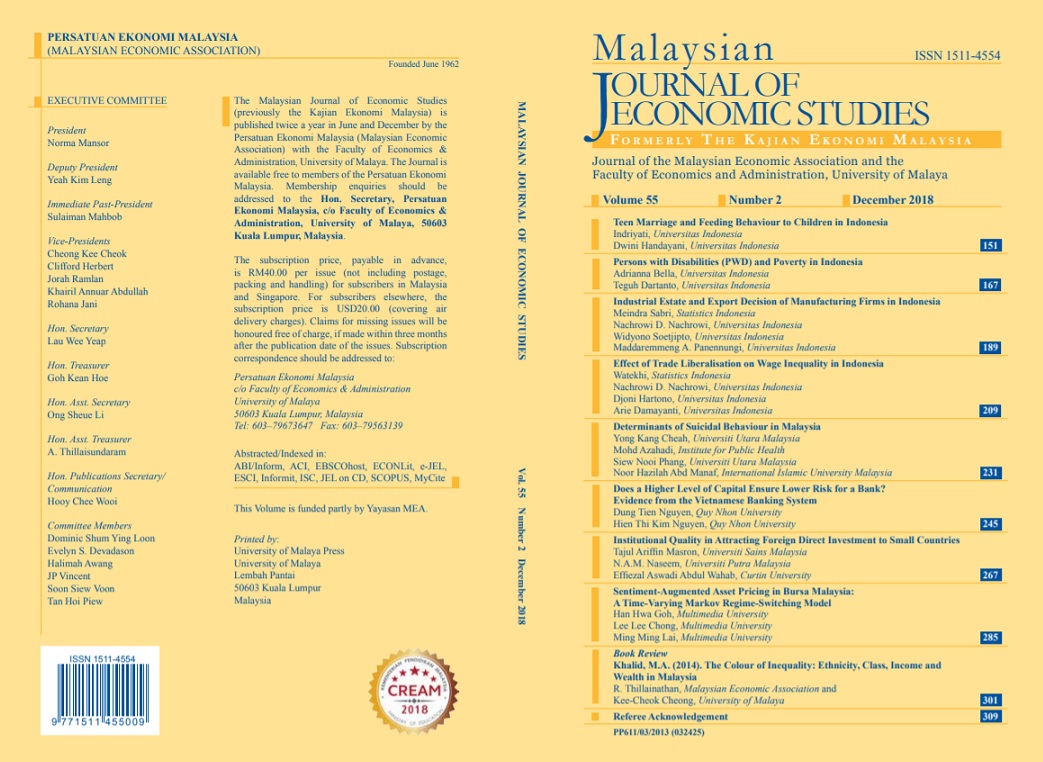Does a Higher Level of Capital Ensure Lower Risk for a Bank? Evidence from the Vietnamese Banking System
DOI:
https://doi.org/10.22452/MJES.vol55no2.6Keywords:
Bank capital, dynamic panel, risk, VietnamAbstract
The relationship between bank capital and risk is one of the conventional and highly debatable issues in banking literature. In the context of this paper, we apply the two-step generalized method of moments (GMM) technique for dynamic panels for the Vietnamese banking sector over the 1999-2014 period to investigate how risk is sensitive to capital regulations. As controlling both bank-specific characteristics and macroeconomic variables, we found a negative relationship between capital and risk which is proxied by two alternative Z-score measurements. Our findings not only support the moral hazard hypothesis where banks have incentives to exploit explicit and implicit deposit insurance schemes but also reveal the first direct beneficiaries from the regulations following Basel I standards in Vietnam that domestic banks with a higher capital level are more likely to avoid default and risk. However, increasing capital and improving operations management should be complementary criteria to ensure financial system safety.







